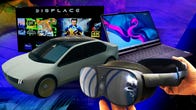The Best Products We Found at CES 2023, From Giant TVs to Tiny Pee Sensors
After a two year lull, CES is back in fighting fit form. The world’s biggest tech companies descended on Las Vegas once more, and they brought with them some remarkable goods. Among other things, we saw an $800,000 flying car, a crazy huge wireless TV (more on that one below) and yes, a pee sensor for your toilet at home (definitely more on that below).

This year’s show marks the return of full in-person CES. It’s thought to have brought in more than 100,000 people, and over 2,200 companies talked up what they think are the next big things. This year — and for the first time since 2020 — CNET editors walked the floors to see new products and services on display.
Before we dive into our list of the best of CES 2023, here are the criteria we used. We tried to keep the number of those earning our Best of Show Award to between five and seven. All on this list meet at least one of the following criteria.
- The product includes a never-before-seen concept or idea.
- The product attempts to solve a major consumer problem.
- The product is a redesign or different take on an existing product in a way that sets a new bar in performance or quality.
Finally, to avoid giving awards to products that may never see the light of day, we gave more weight to those with at least a calendar year release window or timeline, as opposed to products with no planned release date or a more nebulous one.
LG M3 Series 97-inch wireless OLED TV
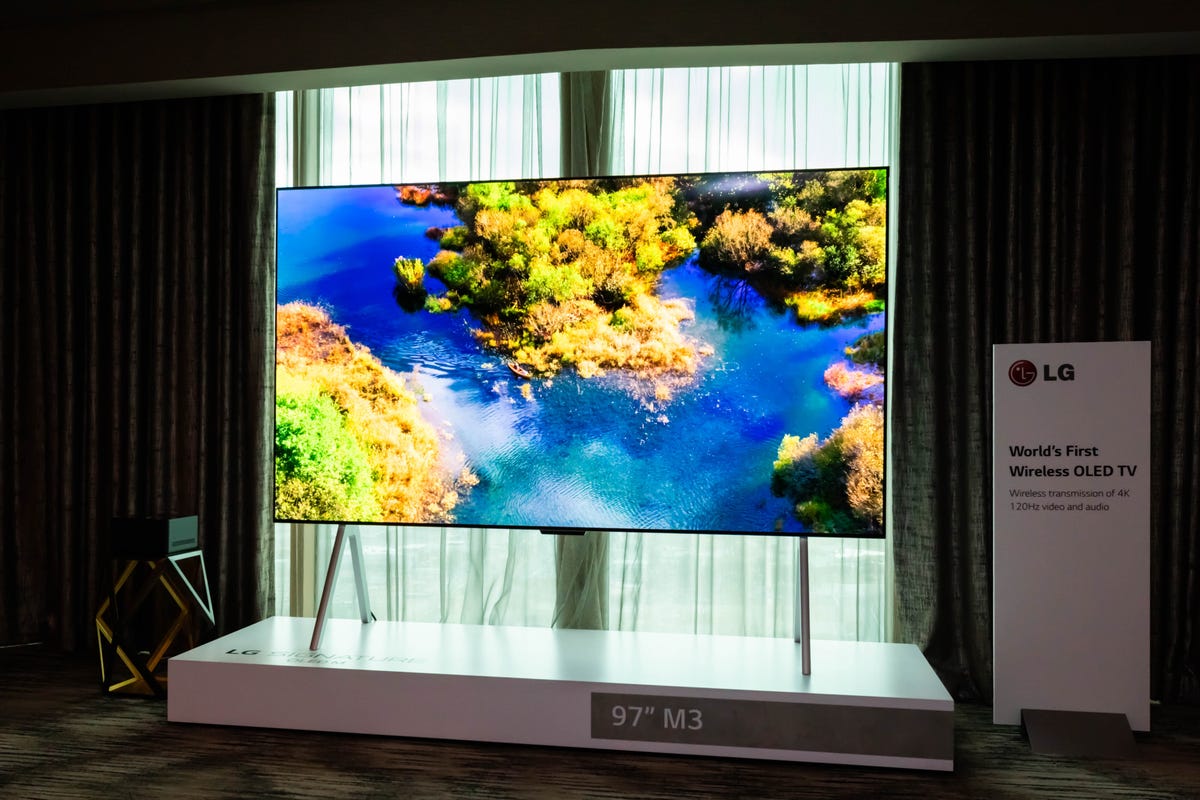
James Martin/CNET
The LG M3 Series 97-inch wireless OLED TV is a behemoth that doesn’t skimp on normal high-end TV features. This gargantuan beast of a TV combines fantastic picture technology with its huge size to be one of the most exciting TVs in recent memory. What really takes it over the top, however, is that it’s entirely wireless.
Yep, no more fussing with a bunch of wires behind your entertainment center to get them to look as if they’re not there. With this TV, they aren’t.
LG says the 97-incher should be out in 2023 along with an 83- and 77-inch version. Don’t expect it to be cheap, though. The wired version of LG’s 97-inch TV costs $25,000, while its 77-inch OLED is only $2,900. Just to set expectations.
Withings U-Scan
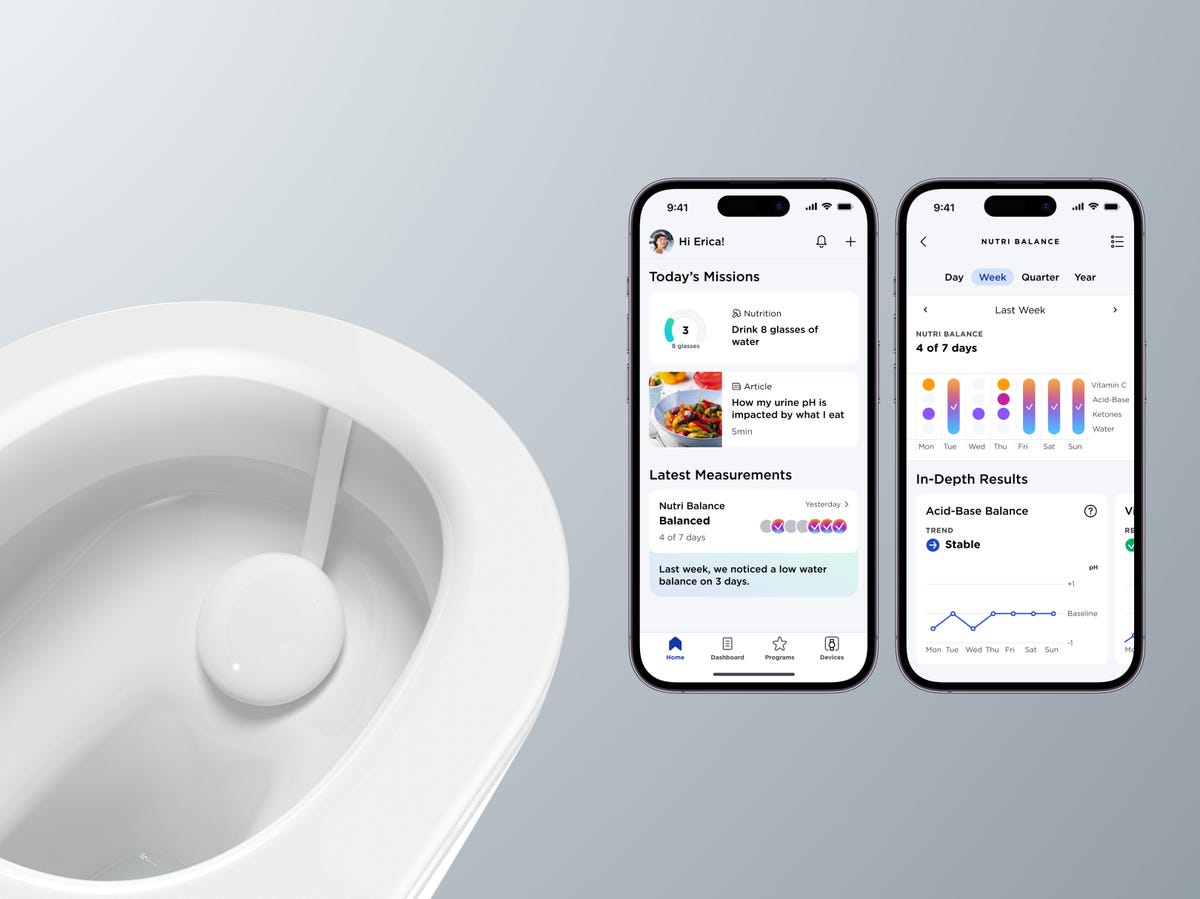
Withings
Ever imagine you could get on-the-spot health data at home, just by going number one? You’ll soon be able to with the Withings U-Scan (pee) sensor. The device sits at the front of your toilet. When you pee – and apparently it’s best to sit when you do so to get an accurate sample – it collects the urine, analyzes it and then sends the results to your phone via Wi-Fi.
What type of results, you might ask? Well, for starters, it can monitor daily ketones and vitamin C levels and test your urine’s pH level, which can indicate overall kidney health. Use a different cartridge, and women can use it to track their menstrual cycles.
We’ve seen at-home urine test strips that require you to be hands-on to get test results, but the U-Scan is designed to be a seamless experience. Just do your business and move on. The fact that you can do this testing daily without even really thinking about it and get results sent to you right away is what truly sets the U-Scan apart.
HTC Vive XR Elite
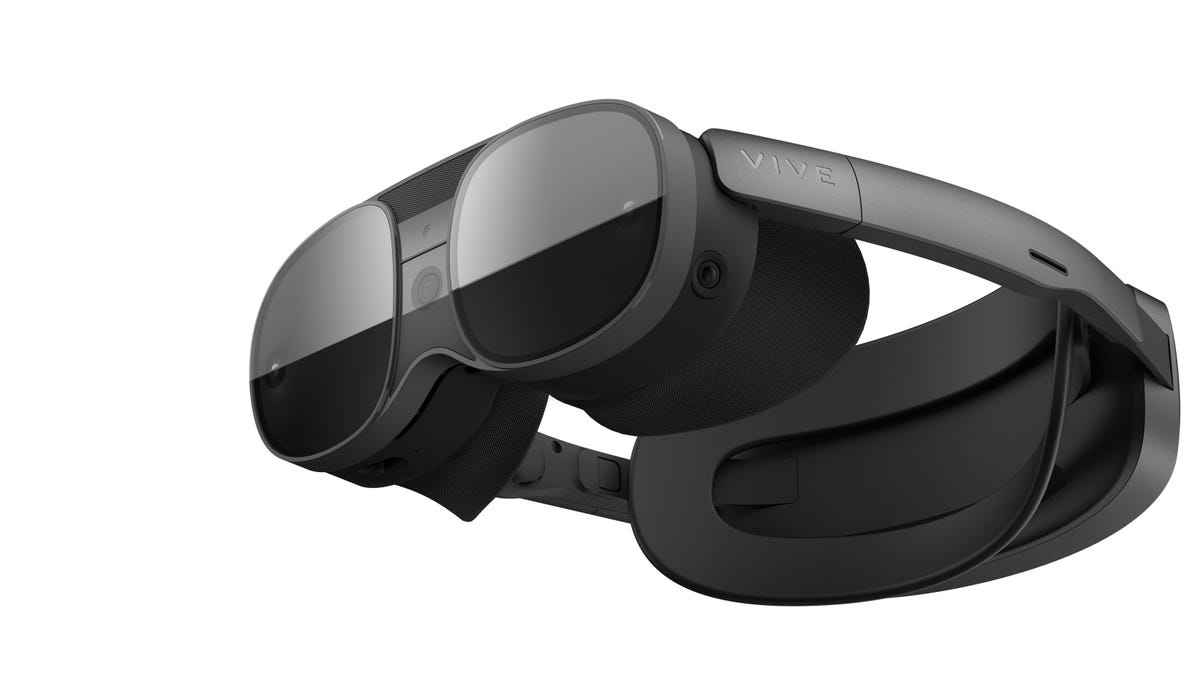
The XR Elite is a VR headset with mixed reality that looks almost, at some angles, like glasses.
HTC
The HTC Vive XR Elite is the latest version of HTC’s VR/AR headset and, based on our time with it, might be the best Vive so far when it’s released in late February for $1,099.
Yes, we’ve seen VR headsets before, so what make this one special? The main reason it’s on this list is its size. HTC has shrunk the VR headset down to almost normal glasses size, and less than half the weight of the Quest Pro VR headset.
If you wear glasses normally, you won’t need to wear them while using this. The adjusting dials, or diopters, can change the lens prescription in real time, meaning the user needn’t wear glasses at all. That’s a really useful feature if it works as well as expected. As a person who wears glasses, but has soured on VR in the last few years, the combination of the XR Elite’s small, light chassis and the no-glasses requirement makes VR a much more appealing prospect to me.
I’m not about to rush out and buy a VR headset, but the tech here looks to be exceptional, so let’s hope it catches on.
BMW i Vision Dee
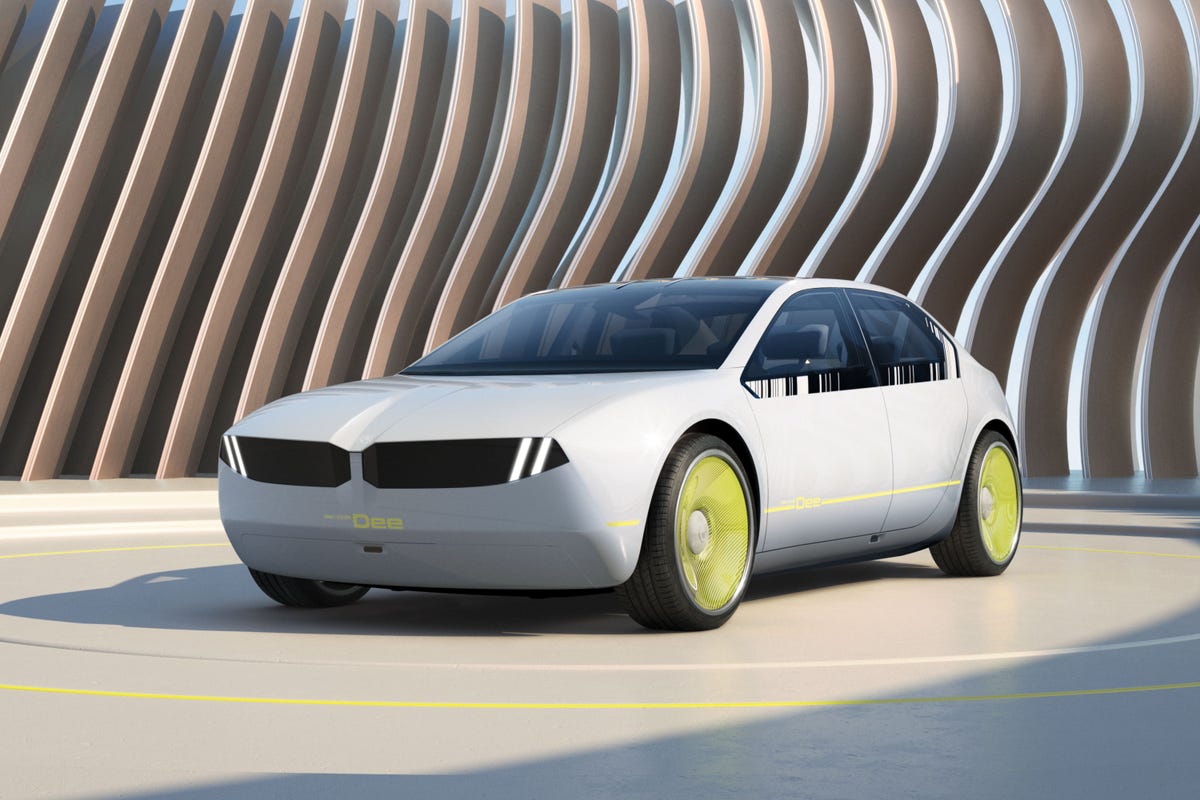
The minimalist design of the i Vision Dee concept is a blank canvas for digital expression
BMW
Yes, the BMW i Vision Dee is a concept car, so my first reaction was to take every feature here with a grain of salt, but BMW has confirmed that the coolest and most useful feature, the head-up display, is coming to production cars in 2025.
Instead of a traditional dashboard screen, the Dee instead uses the entire windshield as the HUD. It’s an AR display that uses the full-width of the windshield and includes five levels of immersion. Level 1 gives you the essentials – speedometer, some navigation information and so on. Levels 2 through 4 increases the information onscreen and eventually overlay navigation information on the road.
Level 5 can display a completely virtual environment and is not meant for driving. Or rather is not meant for when you drive and is instead intended for when a car drives you. This is one of those that works best in motion, so check out the video of the BMW i Vision Dee to see it in action.
The concept car also has an E Ink cover on its chassis that can change color based on your own desire, and during BWM’s press conference the presenters made it seem like it could carry on a conversation with you, a la KITT, but BMW admitted it used a backstage actress to show what it wants to do in the future. Again, only the HUD is confirmed to come to cars in the future, so it was the most useful thing to focus on.
Samsung S95C 77-inch QD-OLED TV
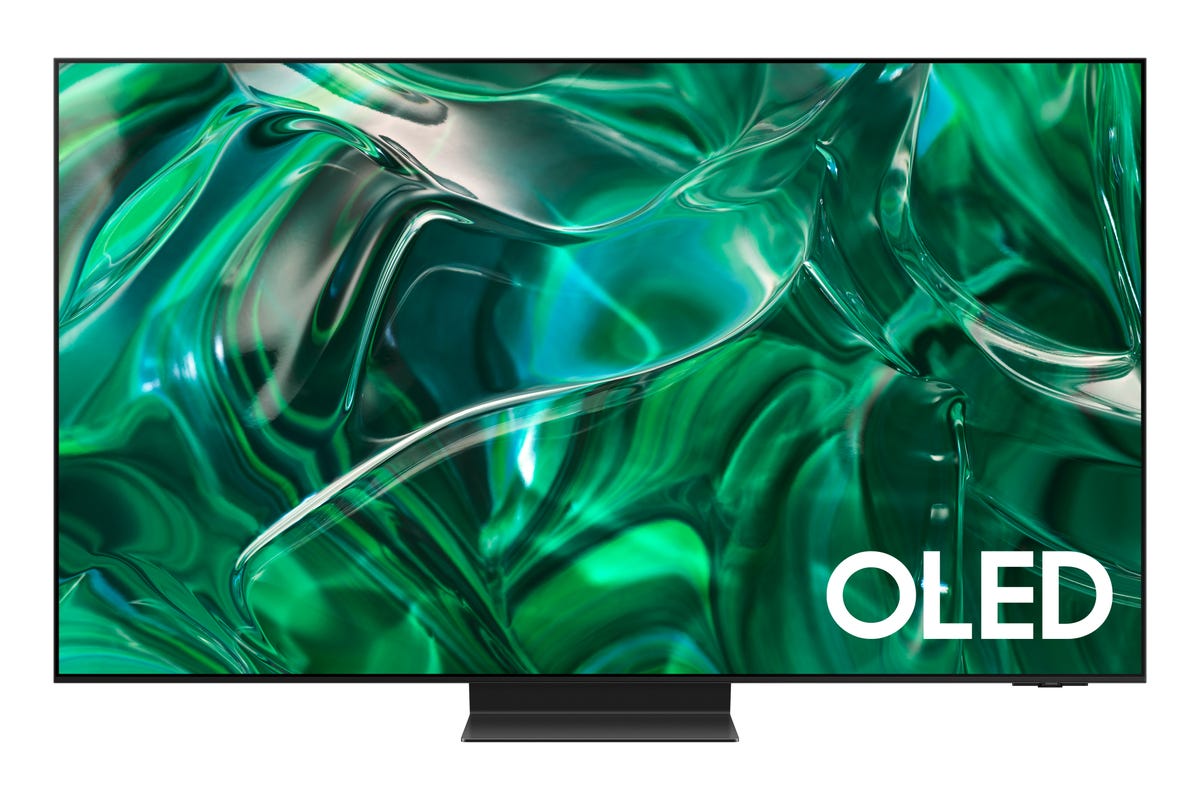
Samsung
The Samsung S95C is the company’s first 77-inch TV using its QD-OLED technology. It improves on the previous year’s model with better antiglare technology and brighter images. The color in particular seemed to impress our TV expert, David Katzmaier, the most; however, the screen finish is a bit grayer than LG’s, which tends to wash out the image somewhat.
Still, the key reason it’s on this list, beyond its high quality, is the potential it has to give LG a run for its money in the high-end, 77-inch TV market, which could eventually bring prices down across the board. Great news for those of us looking to buy a big, awesome high-end TV sometime in the future.
Schneider Smart Home system
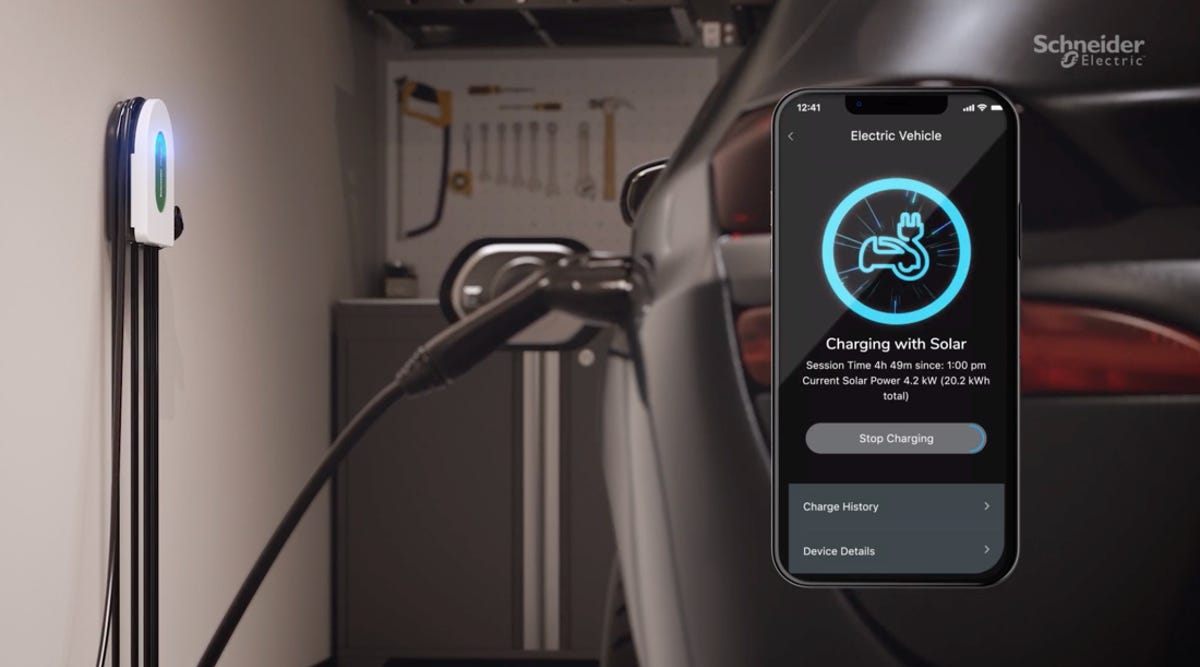
Schneider Electric
Schneider’s Smart Home System isn’t something I’d ever considered owning until I moved into in a new, larger house in 2020. Let’s just say, I grow at least a few more gray hairs when a new bill comes in. The system will allow users to save money by scheduling when certain outlets draw power by controlling the breakers, switcher and outlets to prevent energy vampires like TVs and chargers from drawing power when we don’t need them to.
For EV users it can schedule when your vehicle charges, timing it to only charge when rates are lowest or if possible only charge using solar panels.
As home electricity rates get higher – where I live they certainly have – and with more devices that demand more charging in our homes, having this kind of detailed control, without having to go unplug a bunch of stuff every time you leave the house or go on vacation, is a welcome remedy indeed.
Dolby Atmos in-car sound in a Maybach
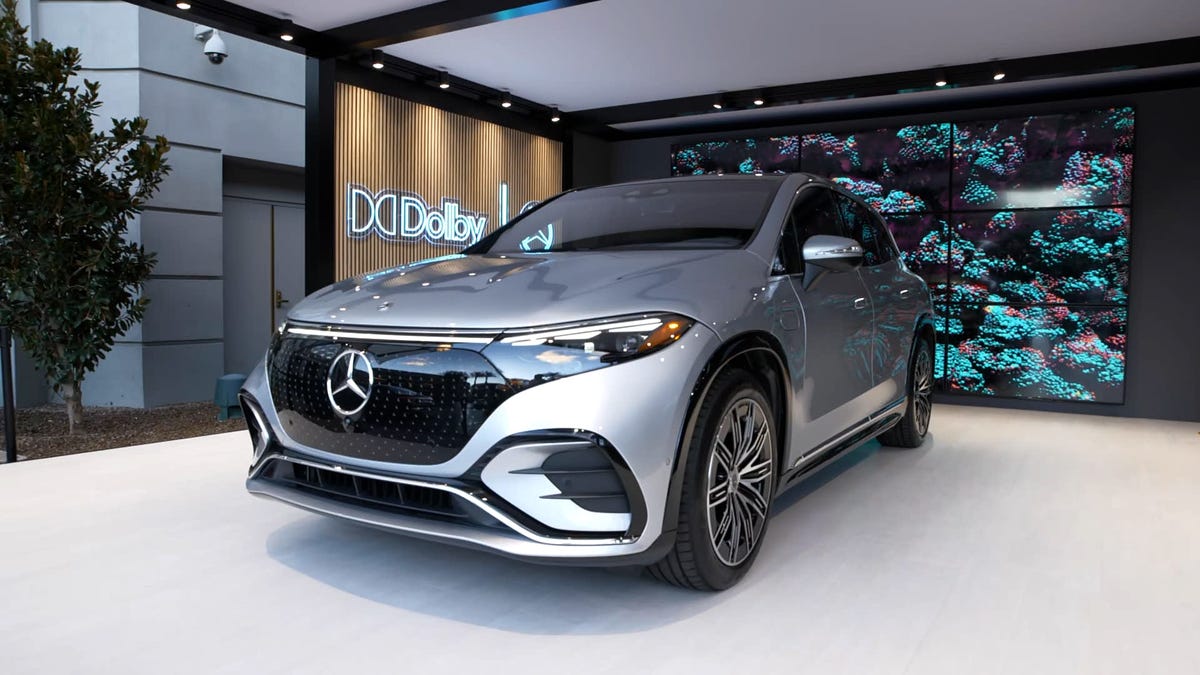
Mercedes and Dolby’s partnership remains strong.
CNET
Dolby Atmos is a sound technology – think surround sound 2.0 – that attempts to fully immerse you in whatever you’re listening to. Atmos has been around for a while in movie theaters and home theaters, but the Mercedes-Maybach is one of the first cars to use it.
So how good is it? The experience is hard to explain, but I’ll let CNET Editor Bridget Carey do her best. She says, “The music felt like it was floating in the space around me – I couldn’t tell where the speakers were located; it created a surreal sound. When listening to Queen’s Bohemian Rhapsody, it was like Freddie Mercury was just floating in front of me.”
Check out the video to get a better idea of what Bridget experienced in the $185,000 Maybach. For those of us without that kind of cash, Dolby says we could see Atmos used in more-affordable cars. The team is working on adapting the technology to a traditional six-speaker setup, but no word on when exactly just yet.
CES 2023 returned with some potentially useful technology. Some new, some refinements, but at the very least attempt to solve a known consumer issue. There were plenty more that almost made the list. These are just the true standouts. Be sure to take look at the rest of CNET’s CES coverage for everything else.
For all the latest world News Click Here


